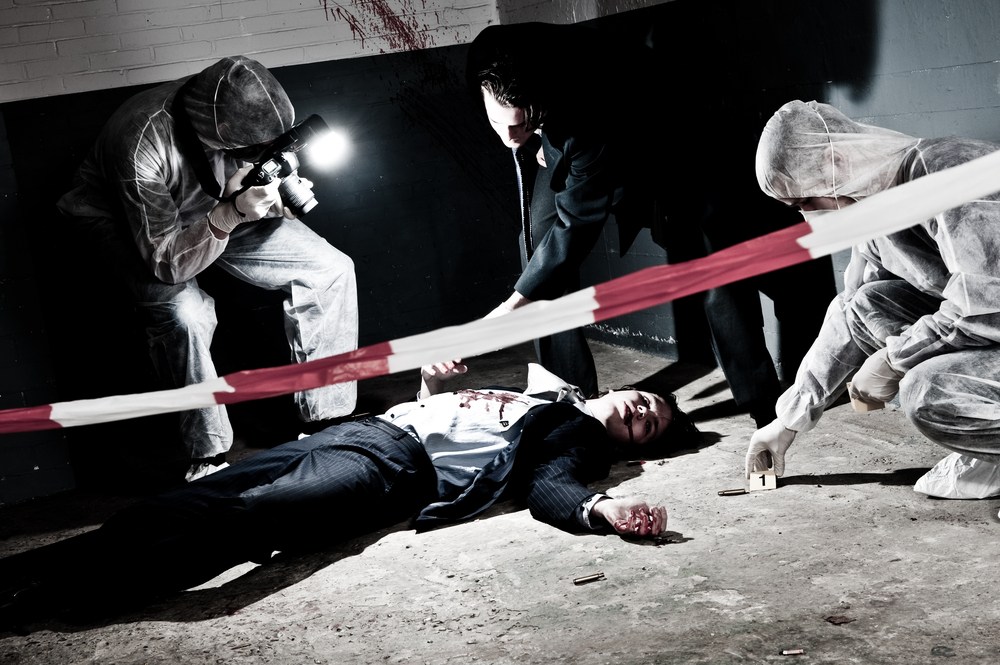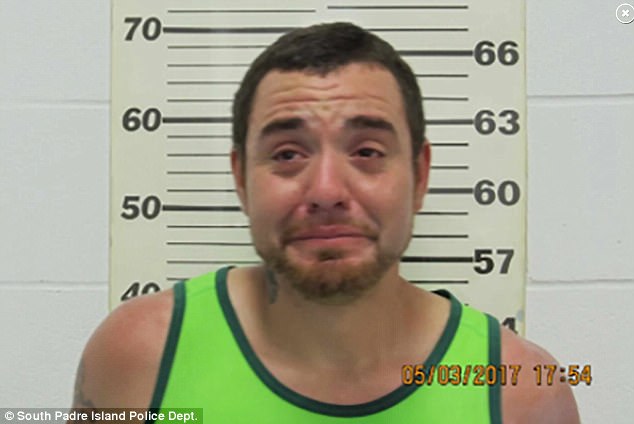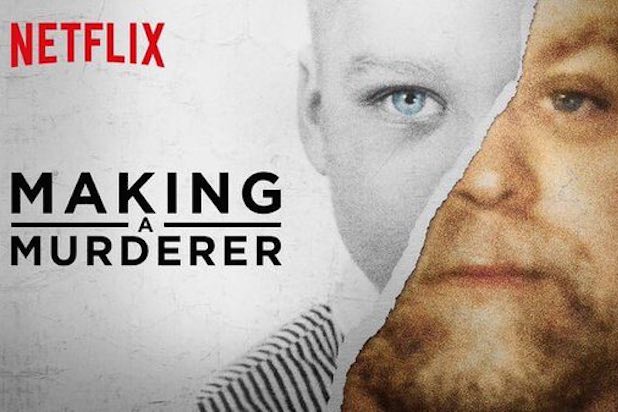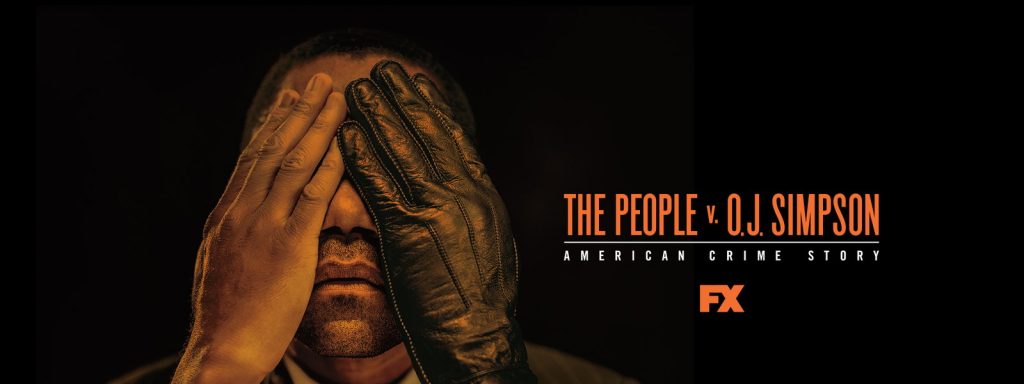Is Crime Addictive? The Dark Side of Psychology – An Interview with Joni E. Johnston, Psy.D.


We all know of people who are utterly obsessed with true crime – those family members who somehow ALWAYS win Cluedo (but you’re convinced they rigged it)…they thrive in guessing who did it when watching a classic murder mystery….some even go so far as to host murder mystery parties (hint hint, guys). As documentaries and Netflix shows have shown, it is an incredibly popular genre. Psychiatrist Dr. Sharon Packer explained the possible reasons as to why we are so interested in the psychology of evil – the link is here: A Psychiatrist Explains What Your True Crime Obsession REALLY Says About You.
I interviewed Joni E. Johnston, Psy.D., forensic psychologist and private investigator. Her resumé includes working in a maximum security prison, consulting for harassment/discrimination complaints, and publishing several books, including The Complete Idiot’s Guide to Psychology, 4th Edition (Hello, degree bible…). Johnston regularly updates her Psychology Today blog ‘The Human Equation’, which discusses the dark side of human nature, particularly focusing on the links between women and crime. Topics of ‘The Human Equation’ include cult leaders, female serial killers and Munchausen by proxy. Her article, ‘Hooked on Homicide’, examines links between addiction and criminal behavior, and more specifically, homicide.

You’ve worked in a maximum security prison. Could you tell us a bit about that experience?
Where do I start? I worked in two areas inside R.J. Donovan Correctional Facility. I first worked on the Assessment Unit, where my job was to evaluate mentally ill inmates who had gotten into trouble inside the prison and help determine if their mental illness caused, or contributed to, their disciplinary infraction. So, for example, did an inmate get into a fight with his “cellie” (cellmate) because the cellie mouthed off at him or because he was agitated and hearing voices? Did the inmate spit on the custody officer because he was mad or because he thought the c.o. was possessed by a demon? If there did seem to be a link between the mental illness and misbehavior, my job was to make recommendations to the disciplinary board about appropriate consequences and what those consequences might do to the inmate’s mental health.
I also worked on the Crisis Unit, the place where inmates were sent who were not functioning on the yard because they were believed to be a danger to themselves or someone else. So, if an inmate stated he was thinking about killing himself, had threatened another inmate, or was not taking care of himself (for example, refusing to eat or drink anything, take a shower, etc.), he would wind up on my unit. One of the most interesting parts of this assignment was learning how the inmates navigated the system to survive. So, for instance, an inmate might be suicidal because he was depressed or lost a significant relationship. But he also might threaten suicide to get out of a drug debt on the yard or because he felt threatened by another inmate.
Has forensic psychology always been your passion, and if so, why?
I guess you could say forensic psychology was my passion before I even knew what it was. It all started at age 14 when read Helter Skelter, a fascinating book about Charles Manson and his “family,” while on a 2-week road trip with my family. Then, when I was a senior in high school, serial killer Ted Bundy escaped from prison in Colorado and murdered some Florida State coeds just 90 miles from my house. That was it. As a college senior, I talked my Abnormal Psychology professor into taking a field trip to a maximum security. So, yes, it has always been my passion. As to why, I don’t completely know. I’ve always been interested in the extremes of behavior (both good and bad) and perhaps my early love of Halloween and scary movies swayed me over to the dark side of human nature.
Leading on from the last question, you’re the author of The Human Equation, a blog on Psychology Today. It focuses on the dark side of human nature. Why do you think we have such an innate fascination with crime and the psychology of evil?
I believe our fascination with crime and evil is complicated and complex. On the surface, it’s an extension of our fascination with violence and tragedy in general – think of how often we are transfixed by natural disasters, car accidents, or plane crashes. It seems to be part of our human nature to have trouble looking away from human suffering.
On a deeper level, true crime allows us to experience a range of powerful emotions in a safe and controlled environment where the threat is exciting but not real. We get a vicarious surge of adrenaline when we are witnesses to upsetting or disturbing deeds. They also trigger perhaps the most basic and powerful of all human emotions – fear. – in an environment where the threat is exciting but not real. And, for those who at times feel trapped by, or bound to, their strong sense of empathy and duty towards others, true crime may allow them to temporarily experience the freedom of complete selfishness without hurting another human being.
In your article, Hooked on Homicide, you discuss links between addictive behavior and serial killers. Also, on an online interview, you discussed how it becomes easier for someone to cross a line when they’ve already crossed a line previously. Why do you think this is? Would you say that the initial, first crossing of a line is the hardest for people to do?
The vast majority of us would never murder someone else. And, if we did, and somehow got away with it, we would certainly never do it again; we’d thank our lucky stars that we’d somehow escaped much-deserved consequences and vow to stay on the right side of the law for the rest of our lives. Serial killers, on the other hand, have a completely different mindset. For one thing, while serial killers are a diverse group, they are likely to have violent fantasies for years before they actually cross the line onto action. Once they start, the act of murder can become addictive.
Most serial killers feel a strong urge to kill. They are, however, fairly cautious and won’t choose a victim unless the changes of success seem high. For this reason, the first murder victim is often a vulnerable person who can be attacked without drawing a lot of attention.
I am very interested in pursuing forensic psychology as a career in the future myself. Could you, for the benefit of those who don’t know what forensic psychologists do, elaborate on some of the roles of forensic psychologists?
You can find forensic psychologists just about anywhere law and psychology meet. Some psychologists work on family cases; for example, they might help decide the best custody arrangements following a divorce. Other forensic psychologists concentrate on civil matters, i.e., evaluating emotional trauma after a car accident, conducting a psychological autopsy after a suicide, or assessing a worker’s stress-related claim. Yet others, like myself, focus primarily in the criminal arena. I have a particular interest in violent crime, so I tend to evaluate defendants or inmates who are facing serious consequences. Some of the issues I address are risk of future violence, criminal responsibility and competency to stand trial.
In your Hooked on Homicide article, you mention how the making of a serial murderer is complex and likely involves a triggering life event. What would define as a triggering life event? Is it an individual’s response to a life event? Can we see general patterns/trends as to the nature of these triggering life events, such as a divorce, or death of a family member?
Serial killers tend to bring a complicated mix of biology and psychology to the table. Biologically, they are more likely to have an underactive limbic system and high risk genetic markers, which are activated by an adverse or traumatic childhood event or abuse. This combination gives rise to dangerous, violent impulses, which may lie dormant until an environmental trigger pushes them over the line into murder. The actual event that leads to the first homicide varies from killer to killer; most serial killers describe a series of stressors in their lives, often centering around interpersonal conflict (marital problems, loss of a loved one, parental conflict, etc.) at the time of the murder. However, the “trigger” can also be something as simple as an opportunity to kill or coming across a victim that matches the person’s fantasy.
As a forensic psychologist, you are, at times, required to psychologically evaluate individuals. When it comes to providing your expert opinion in court cases, how do you come to conclusions about the necessary course of action, with regards to rehabilitation or incarceration, for example?
A forensic evaluation is very different from a clinical one because there is a built-in reason for the defendant or inmate to lie. As such, it is very important to gather information and evidence from a variety of sources when forming an opinion – psychiatric records, criminal history, interviews with friends and family members, police reports, etc.
So, for example, if I am evaluating a defendant who is thinking about an insanity plea, I am being asked about a person’s mindset at the time of the crime. I will look at the arrest record, police interviews with witnesses, the pattern of injuries on the victim(s), the documented behavior of the defendant at the time of the crime. Did the person try to escape? Is there evidence the person planned the crime? What was the relationship like between the victim and the defendant prior to the crime; were they in an argument? How do these things line up with what the defendant is saying happened? What did friends and family members observe from the defendant in the week leading up to the crime? Was the person abusing drugs? Was the person acting strangely; if so, how? I will also administer tests that have a built-in “lie” scale to help me evaluate whether or not this person is admitting to a psychiatric problem and if, so, whether or not s/he may be exaggerating or faking. Conducting a forensic evaluation is like putting together a puzzle, with the defendant’s story only one piece.
What has been, in your opinion, the most interesting aspect of your career so far, and why?
That is a tough question to answer because I have been lucky enough to do such interesting things. I guess evaluating and working with convicted felons inside a prison system has been the most interesting aspect of my career so far, for two reasons. One, you quickly see that there are many paths to prison and each inmate has his or her own story. I have met inmates who I thought would have been extremely successful if their backgrounds had been different and I have met a few inmates I wouldn’t wish on my worst enemy. Getting an inside look at prison culture was also a truly eye-opening experience; nothing can prepare you for what life inside a segregation (disciplinary) unit is like until you’ve been there.
I also enjoy writing and speaking about forensic psychology topics. I love writing my Psychology Today Blog and have been asked to appear as an expert on true crime shows. One of these days I hope to host my own show!
You’ve consulted with organizations on harassment and discrimination complaints, and you’ve recently written an article on Psychology Today about what to do if you’re being sexually harassed at work. Do you think the stigma of being ‘the girl/boy who cried wolf’ is still very much alive and kicking when it comes to victims speaking out about their experiences? Does the fear of not being taken seriously prove a catalyst for more sexual harassment to take place?
My sense is that it’s the fear of retaliation that keeps victims from speaking up more than the fear of not being believed. I think more victims are smarter about the need to tell other people what’s going on, to get outside help/advice when needed, and to document their experiences. Taking these steps makes it harder for organizations to pretend like it didn’t happen. However, it’s still an unfortunate reality that some organizations tend to protect individuals who are high up in the organization or who are big wage earners even when they are clearly in the wrong. That, I think, is the biggest barrier that victims of sexual harassment face.
What are you currently involved with, career-wise? Do you have any books in the pipeline? Any plans for the future to divert fields?
Currently, I spend most of my time evaluating mentally ill inmates to see if they are psychologically stable enough to spend their parole in the community or if they need to spend some of the time in a secure forensic hospital.
I also evaluate the mental state of criminal defendants to determine if they are competent to stand trial or criminally responsible for their actions. I am also working on a book about female psychopaths.







Responses